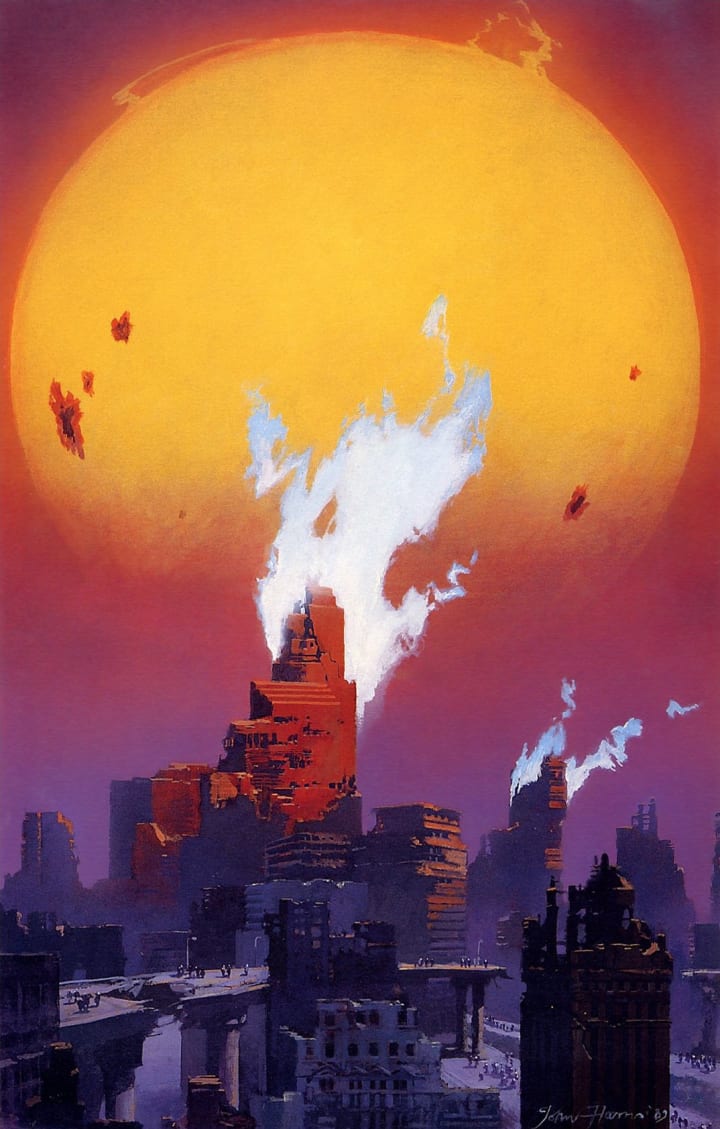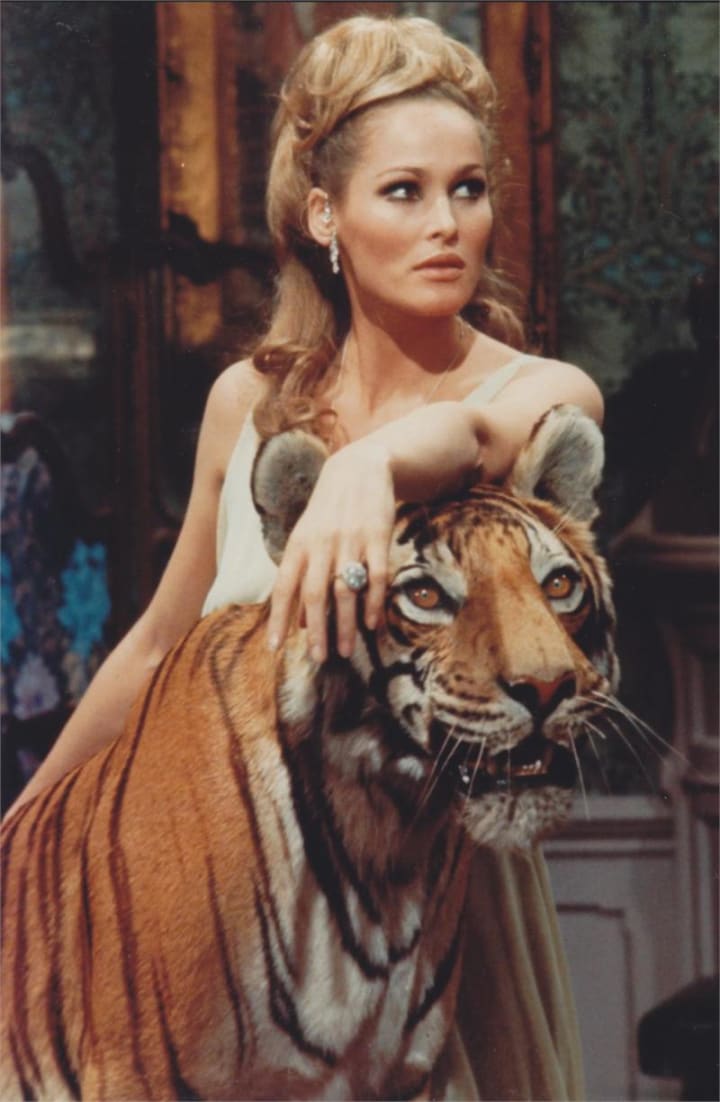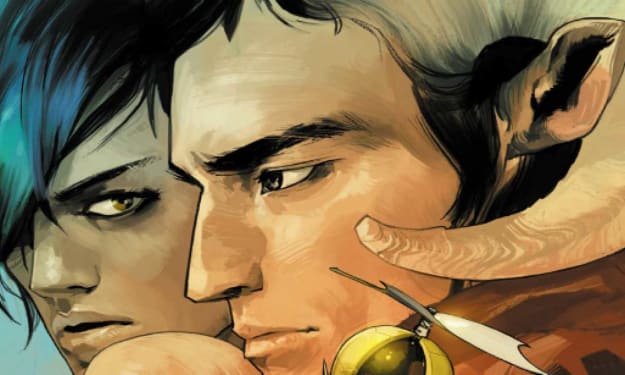Sci-Fi's Obsession with Ancient Greece and Rome
Sci-Fi Vincit Omnia.

Sometimes science fiction returns to the past for places, people, and themes to enrich its mind-journeys into the future. Such is the case with these sci-fi movies, TV episodes, and works of fiction, each one drawing from the ancient worlds of Greece or Rome to dress its story. Brit Marling, a screenplay co-writer of Another Earth, says that this isn’t really surprising. “We’re retelling the same dramas from Ancient Greece,” Marling said. “These stories are so fundamentally old, the mythology that they come from, the hero’s journey — the way a narrative works. Science allows you to take the same story and see it from a new perspective because the science is always new and fresh.” Science fiction’s interest in the ancient world goes beyond mere allusion, as in the middle name of Captain James Tiberius Kirk (Tiberius, in case you’re wondering, was a somber, reclusive Roman ruler who nevertheless left the empire in a better state than he found it). If you’re deeply interested in how the speculative worlds of the future and the worlds of ancient Rome and Greece intersect, you may be interested in a serious paper by academic Tony Keen, “The 'T' stands for Tiberius: models and methodologies of classical reception in science fiction.” If that sounds a little heavy, enjoy the following summary of a few times when togas, laurel wreaths, aliens, and spaceships partied it up in one crazy combination.
In this 2008 episode starring David Tennant, Dr. Who and Donna Noble travel back to Pompeii, AD 79, to realize that they’ve arrived only one day before Mount Vesuvius is scheduled to erupt - also, that an alien invasion awaits them. References to Spartacus, volcanic creatures called Pyroviles, killer stone creatures, and compelling ethical dilemmas all feature in this episode. Dr. Who’s a bit of a jerk and doesn’t want to save anyone, but Donna convinces him to save one man and his family (who are later shown to be alive, well, and adjusting to their new lives). The episode was filmed on location at the Cinecittà studios in Rome. Thinking about this episode made me want to revisit Sufjan Stevens’ “Vesuvius,” one of the best songs from his very sci-fi feeling (and totally amazing) album “The Age of Adz.”
When the Borg attack the Enterprise and abduct Captain Picard, the Captain muses on whether this must have been how the emperor Honorius felt in AD 410 as the Goths descended upon Rome. From the episode: “I wonder if the Emperor Honorius watching the Visigoths coming over the seventh hill truly realized that the Roman Empire was about to fall. This is just another page in history, isn't it? Will this be the end of *our* civilization? Turn the page.”
Prometheus

Dhalgren

Filled with references to Greek and Roman mythology, Dhalgren is a sci-fi classic. The many allusions to recognizable gods and goddesses, myths and legends are similar to the way that the Homeric legend works with Joyce’s Ulysses. You don’t need to understand the ancient texts in order to enjoy the story, but the story wouldn’t be anything as magnificent without them. Some may want to throw Dhalgren out the window for its texts-within-texts and convoluted structure. Others will adore the gorgeous language and the puzzle of this controversial title. You have to read it yourself to decide.
Birds of Prey

In David Drake's Birds of Prey, the year is 262 AD; the place is Rome, and it’s dying. Our hero, Aulus Perennius, is an Imperial secret agent charged with fighting the enemies of the greatest civilization on Earth - and the enemies are aliens with fearsome weapons. If you’re expecting pulp, that’s what you’re getting, but you do get a sea battle with pirates, a fight with a dragon (or dinosaur?), and some ridiculous romance along the way. The aliens don’t pop in until the end, but you do get a bit of a battle to enjoy (if “Men’s Adventure Fiction” is your thing and you really love third century Rome mixed with extraterrestrials).
She

When British archaeologist Holly’s young friend Leo finds that his face bears an uncanny resemblance to the visage on an ancient coin, the pair (and Holly’s valet) are spirited off an adventure to a hidden city where the Hellenistic age is still alive. There they meet the supernatural Ayesha, “She Who Must Be Obeyed,” played by Ursula Andress, who believes Leo to be a reincarnation of Alexander the Great’s priest/companion Kallikrates. Their dreams of sharing immortality and the throne for eternity are thwarted when Ayesha’s enslaved tribesman attack and the film ends in tragedy. Bonus: She is one of the more than 180 films in which the inimitable Christopher Lee plays the villain.
Time Bandits

It's Time Bandits; you already know the story. Eleven-year-old Kevin is obsessed with other times and places (especially Ancient Greece), and a mysterious midnight visitor and the discovery of an unusual map jumpstart his adventures through time. When Kevin becomes separated from the group and ends up in Mycenaean Greece, he meets King Agamemnon, inadvertently helps the king kill a minotaur, and then the king adopts him. Of course, he’s on to new adventures soon afterward, but check out that crazy minotaur! Real awesome special effects there.
In “Plato’s Stepchildren,” a classical Greek society that has allegedly modelled itself upon Plato's ideal state uses telekinesis to control Kirk, Spock, Uhura and Chapel, who’ve been lured to their planet when their leader becomes ill. Since they’ve angered the powers that be, the supposedly Platonian society humiliate them, forcing Kirk and Spock to dance like court jesters. After requiring their captives to don Greek garb, they make the four perform for them, forcing Spock and Chapel, then Kirk and Uhura, into passionate onstage kisses (ok, they were passionate for 1960s television). Significantly, the Kirk and Uhura kiss was one of the first multiracial kisses on television; the network hoped that portraying it as involuntary would provoke less outrage, but behind the scenes, the actors did everything in their power to make sure that it aired (and Nichelle Nichols insisted that it was all real, even when you can’t see their lips touching). There’s not a lot of real Platonian philosophy here, but it does make for an interesting setting for such an important moment in television history.
About the Creator
Sarah Quinn
I'm a writer in love with India, Stars Wars, fantasy, travel, and Thai curries. My childhood heroes were Luke Skywalker and Joan of Arc. I muse on superheroes, sci-fi, feminism, and more.






Comments
There are no comments for this story
Be the first to respond and start the conversation.